A Fundraiser for Gaza Hopes to Wake Up the Coffee Industry
For 18 months, the coffee industry has remained mostly silent about the ongoing destruction of Gaza. A new fundraiser hopes to raise money—and jolt the industry awake.

Two hands cradle a coffee cup with latte art, resting on a folded newspaper. Via Pixabay.
Hello and welcome to another Coffee News Roundup, this week coming from a hot and humid Michigan. A bit too hot and much too humid if you ask me, but I am Scottish.
This weekend is also the Memorial Day holiday and traditionally the start of summer, although with a stay-at-home order (rightly) still in place and everything being cancelled, it doesn’t quite feel like it.
Right well, we can’t do anything about that. So let’s look at the coffee news shall we? Not a huge amount this week, but the greenwashing and health sections are going strong.
First off, as I pointed out on Twitter, it does seem strange for the Specialty Coffee Association to partner with Square for this report. On one hand, Square has all the data, seeing as how it’s used by pretty much every coffee shop in the country—Daily Coffee News says that the report involved “data from millions of anonymized transactions from coffee shops all over the US.”

A takeout window with a sign reading “COFFEE TO GO” set within a brick wall. Via Unsplash
On the other hand, just last September Square announced massive rate increases that raised some coffee company’s fees by $8,000 per year. They clearly don’t have the coffee industry’s best interests at heart.
Anyway, the report. Unsurprisingly, the coronavirus pandemic has had a marked effect on the specialty coffee industry.
Curbside and/or pickup sales have increased 5,380%, and delivery sales 340%. Again, this isn’t really a shock seeing as that’s literally the only business model cafes have left.
For roasters, especially those whose main business is online, sales have also increased—coffee subscriptions have grown by 109%, and equipment sales (kettles, scales etc) have risen a less dramatic but still healthy 11%.
SCA Chief Research Officer Peter Giuliano said of the report, “These trends seem to represent more than a brief moment in time — they likely indicate a greater transformation of the specialty coffee industry and a new way that coffee shops work within the communities they serve.”
Read the full story here and you can find the full report here.
Ah Nestlé, old friend. It’s been too long.
Disposable coffee packaging is a problem when it comes to reducing waste. This is mostly due to the difficulty of recycling such mixed materials—plastic, foil, and paper all glued together into a lovely big mess that confuses recycling machines.
There are a few ways to recycle your coffee bag—TerraCycle is what I use, if you’re interested—but it puts the onus and cost on the consumer (recycling almost always puts the onus and cost on the consumer).
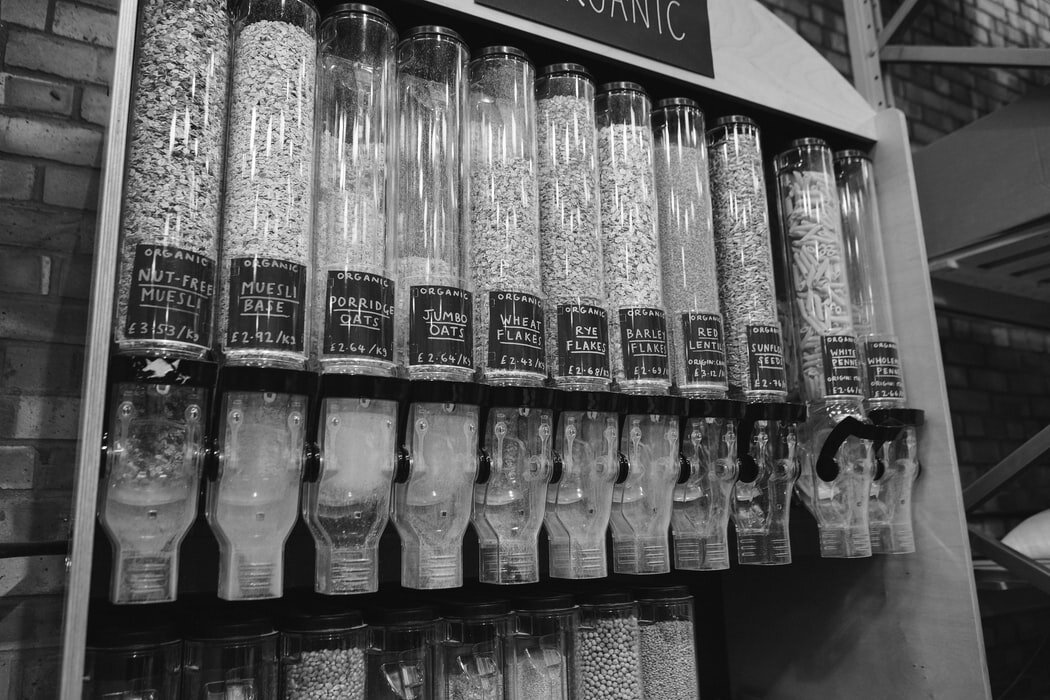
Plastic bulk food dispensers filled with various grains. Via Unsplash
Another option is to dispense with bags entirely, and refill your own container out of a big funnel thing like they have at your local hippy bulk food store. Of course this makes eCommerce nigh-on impossible, and excludes those who can’t or don’t have access to such a place (which, right now, is basically all of us), but that’s not stopping Nestlé.
With impeccable timing, everyone’s favorite cartoonishly evil food conglomerate has announced a pilot of its new futuristic “reusable and refillable dispensers for soluble coffee as part of its efforts to reduce single-use packaging” according to Global Coffee Report.
You might be thinking, “Hmm, aren’t these just the same plastic tubes filled with rice with a handle at the bottom like GreenGuyz Food Cooperative has?” Well, you’re wrong. These are smart plastic tubes with a handle at the bottom. Hélène Lanctuit, R&D Packaging Lead at Nestlé, says that these innovative items “are novel because they incorporate smart technology which allows us to ensure product safety, and also guarantee the freshness and traceability of our products.”
Adding microchips and gathering consumer data is the future, don’t you know.
But they’re also sustainable! “As part of Nescafé’s packaging transformation journey, we have been working hard to rethink how we design our packaging for better environmental impact,” says (deep breath) Philipp Navratil, Global Head of Beverage Strategic Business Unit at Nestlé, Senior Vice-President.
That’s not the only “sustainable” announcement from a Nestlé-related company this week. Nespresso, they of child labor violations in their coffee supply chain, launched their 80% recycled aluminum pods, part of the company’s “continued journey towards circularity” according to, once more, Global Coffee Report.
“We are constantly challenging ourselves to improve the sustainability and circularity of our operations, including the way we source, use, and recycle materials,” says Jérôme Pérez, Nespresso Head of Sustainability without a trace of irony.
Good and bad news this week.
Let’s start with the bad. New research from Australia, studying data from the UK Biobank and using something called a “MR-PheWAS analysis” to look at the genetics of those studied, found “excess coffee consumption a culprit for poor health.”

A person wearing a ring holds a white cup of coffee in closeup. Via Pexels.
Now, straight away it should be emphasized that “excess coffee consumption” is more than six cups per day, according to the lead researcher. Even though they don’t clarify what a cup is (for a change) that still seems like a lot.
According to Sprudge, that excess consumption “increased the risk of three diseases in particular: osteoarthritis, arthropathy, and obesity.” Moderate coffee consumption, however, was found to be “mostly safe”.
In the second study, also reported by Sprudge, coffee was found to help slow the spread of Parkinson’s disease. This adds to previous research which also pointed towards coffee’s positive effects on Parkinson’s—but this time, urate is the key.
What’s urate, you ask? Well, it’s a salt of uric acid, apparently, a compound that is found in coffee. According to the study’s lead researcher, Dr Rachit Bakshi, "Both caffeine and urate possess neuroprotective properties.” So that’s good.
After interviewing 566 individuals, 369 of whom had Parkinson’s, “the scientists found the likelihood of developing the condition decreased significantly with increasing caffeine consumption, adjusting for age, sex and Body Mass Index (BMI),” according to Yahoo! News.
So the lesson this week is to drink coffee, but not too much coffee. Which seems to be pretty good advice for most things, really.

A person sits on the floor reading a book. via Unsplash
The Pandemic Shuttered My Town’s Only Coffee Shop by Ruth Graham
An Interview With Coffee-Loving Hip Hop Artist Propaganda by Zac Cadwalader
Cloth Coffee Filters: Are They Worth It? by Me
Until next week, drink good coffee. Support your local coffee shop or roaster, and please wear a mask if you go out to do so.
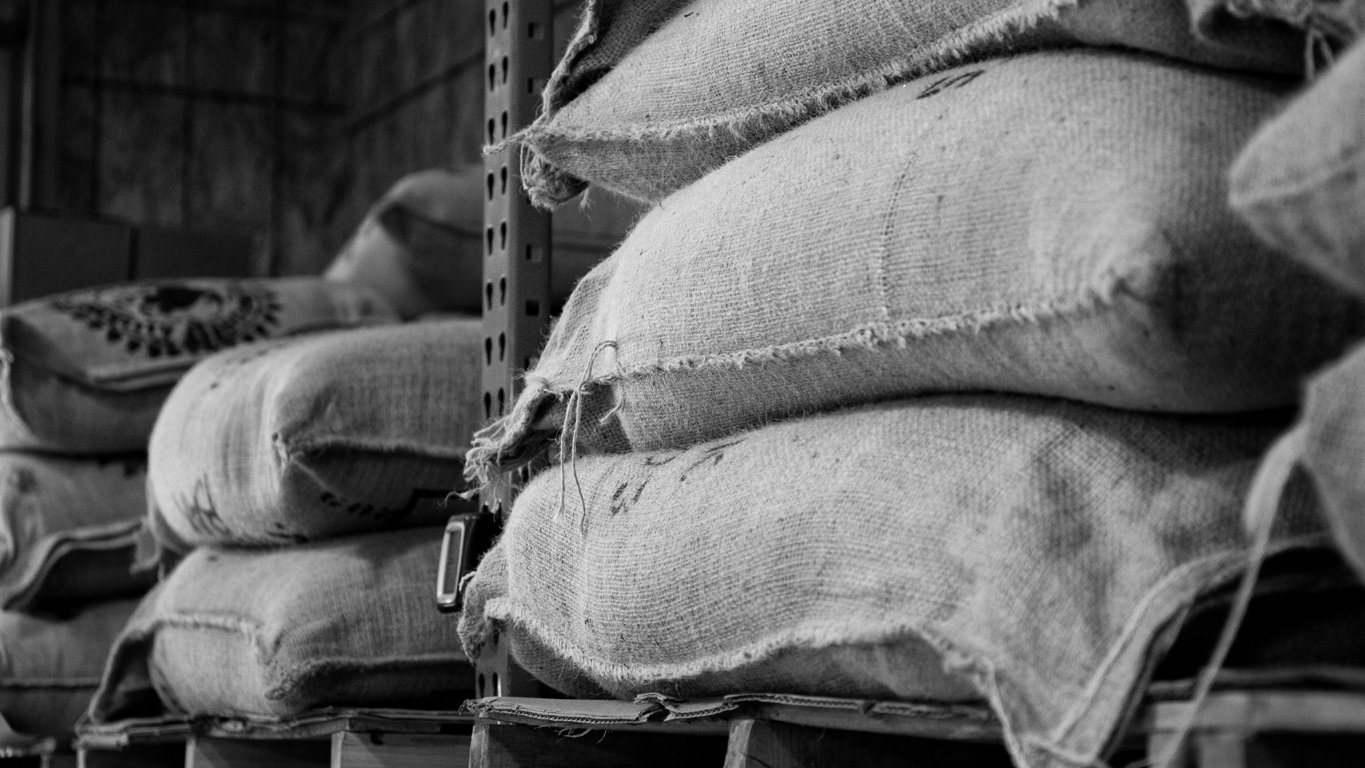
Nov 24, 2023 Connecting the Dots: Inside the 2023 Coffee Barometer Nov 24, 2023 Nov 24, 2023
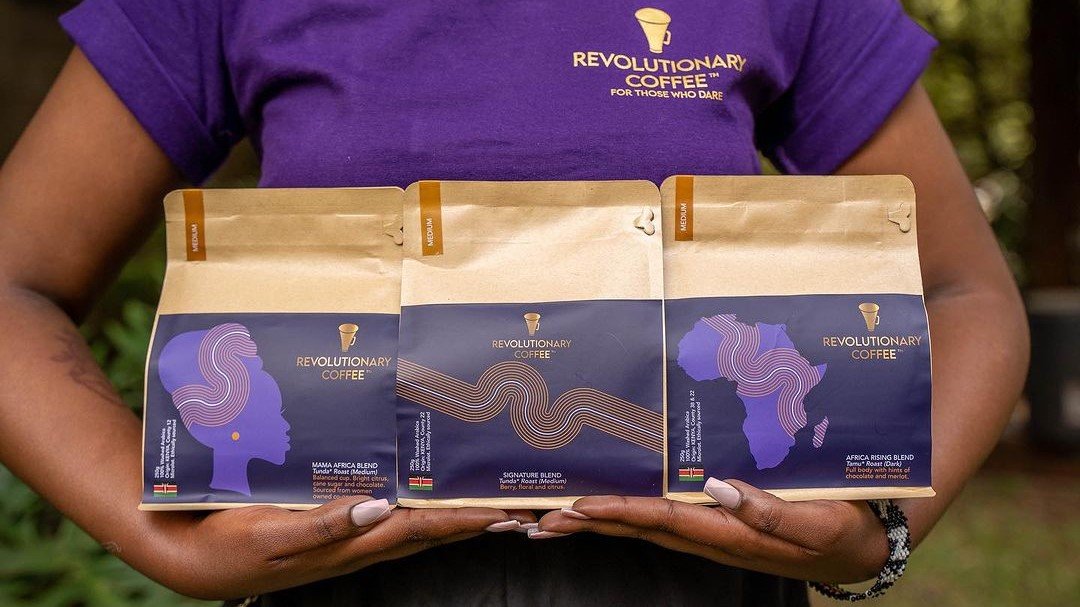
Oct 21, 2023 'Specialty Coffee Should be Enjoyed by Those Who Grow It': The Farmer's Daughter Joining Kenya's Coffee-drinking Revolution Oct 21, 2023 Oct 21, 2023
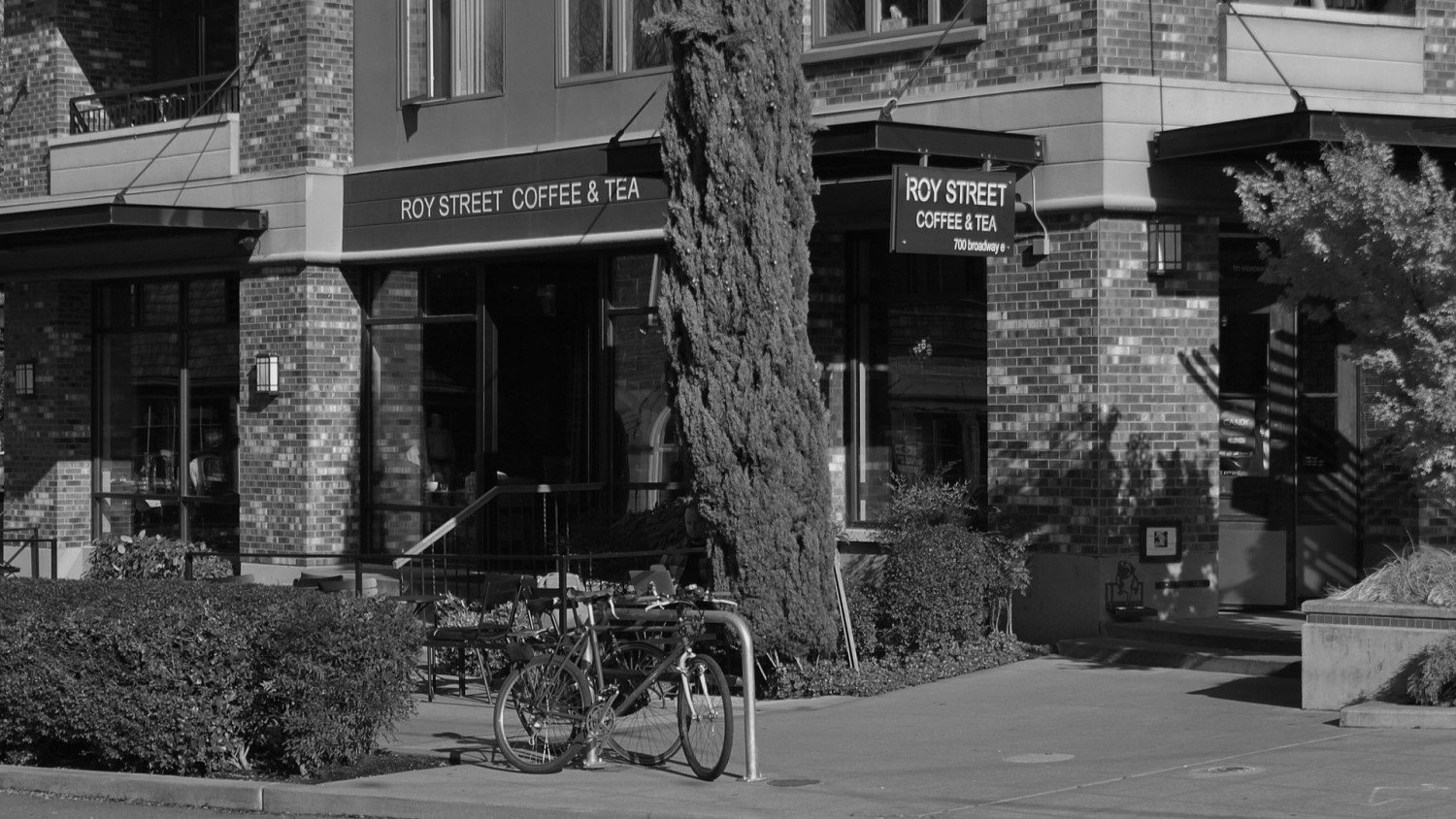
Oct 6, 2023 Stealth Starbucks: A Premonition of Modern Specialty Coffee Oct 6, 2023 Oct 6, 2023
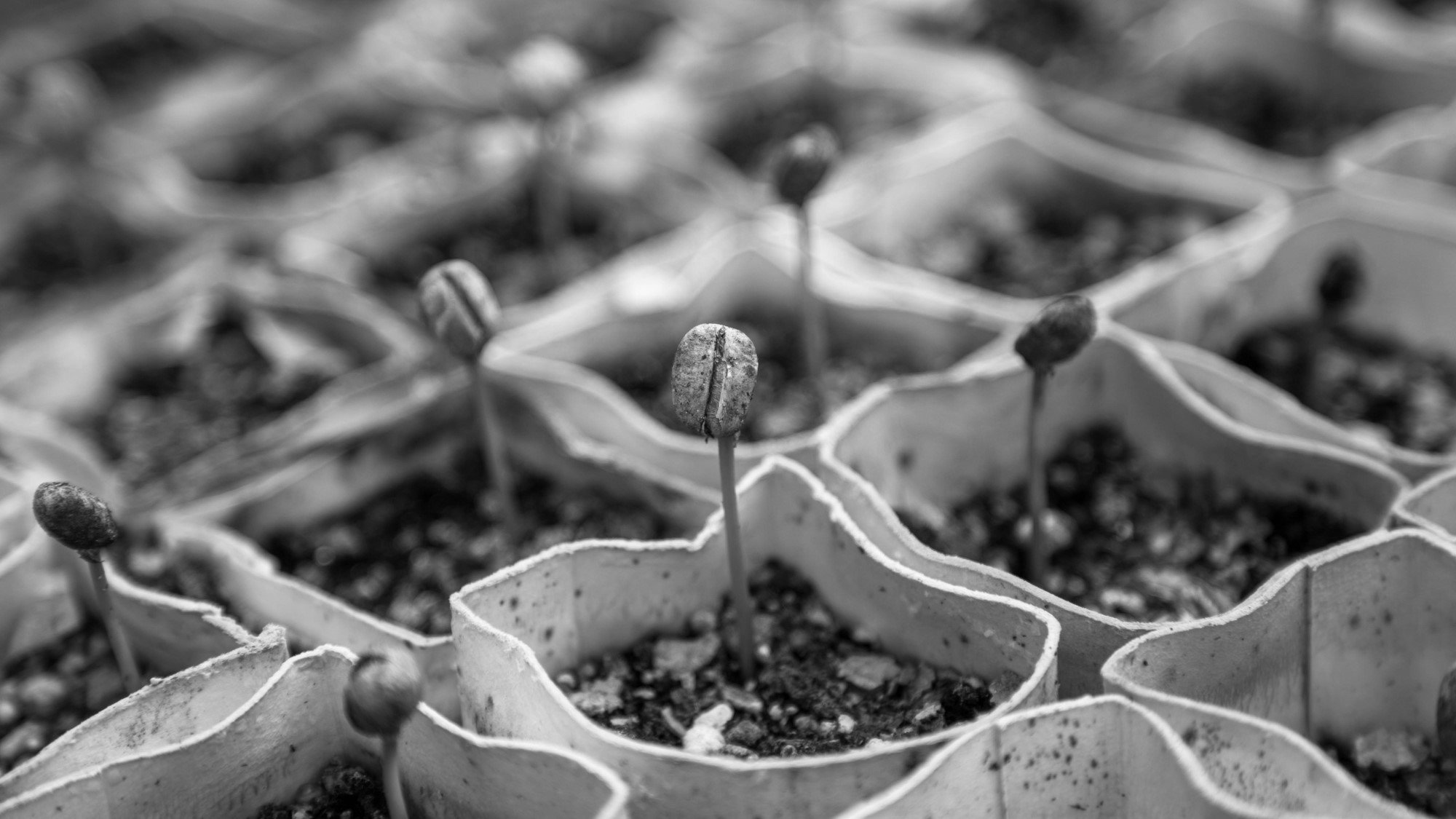
Sep 22, 2023 Can the Coffee Change Fund Save Coffee? Sep 22, 2023 Sep 22, 2023
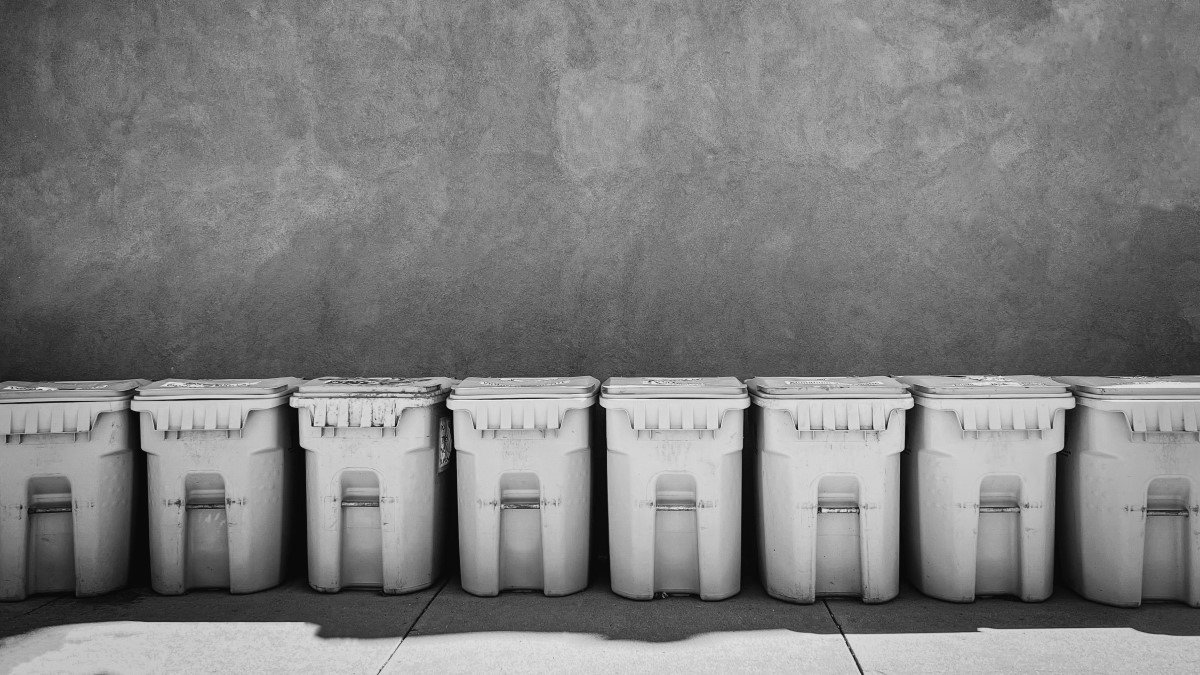
Sep 8, 2023 Upcycled Coffeewashing Sep 8, 2023 Sep 8, 2023
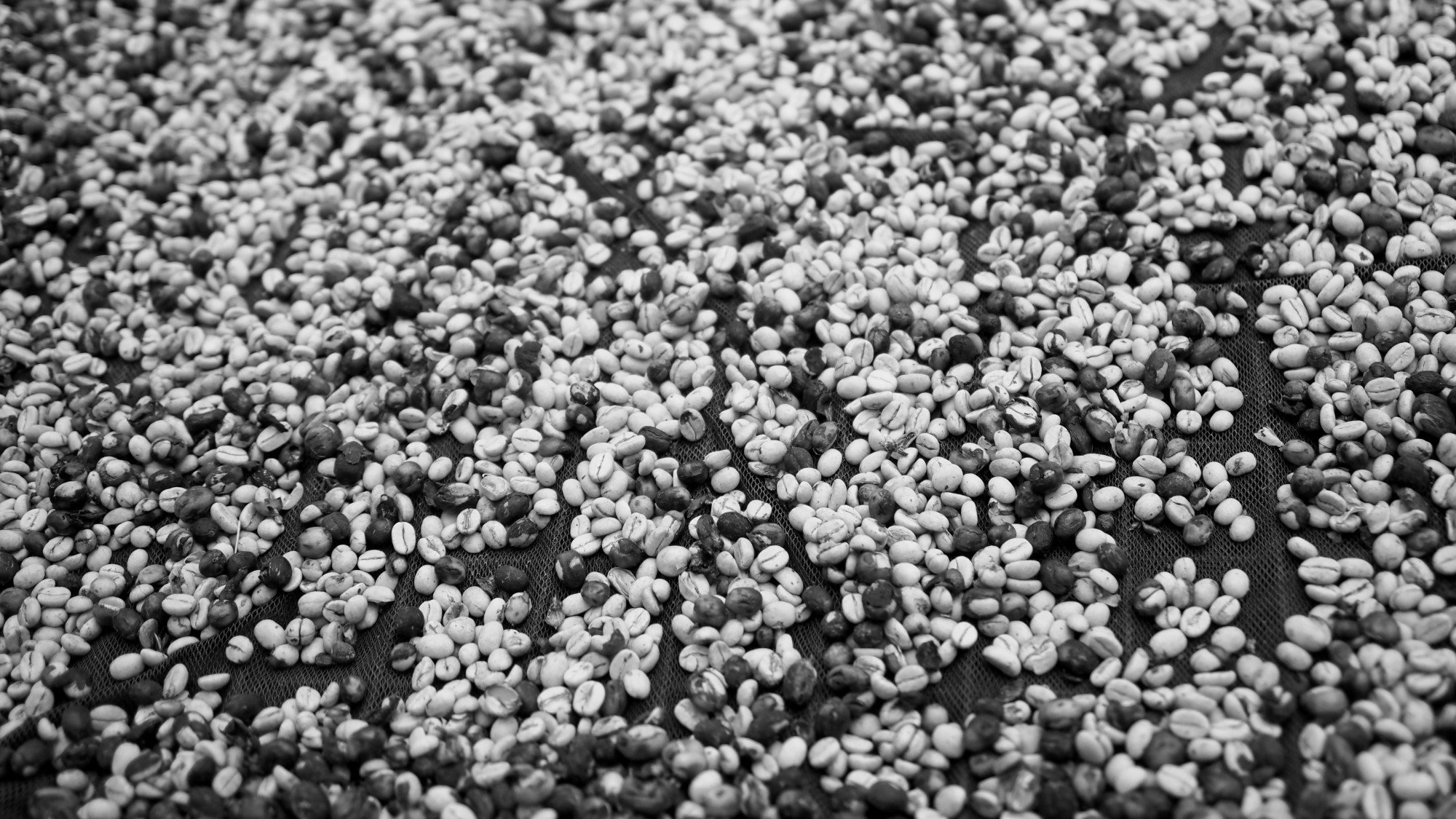
Aug 25, 2023 From A Concerned Farmer Aug 25, 2023 Aug 25, 2023

Aug 11, 2023 Philly is a (Coffee) Union Town Aug 11, 2023 Aug 11, 2023
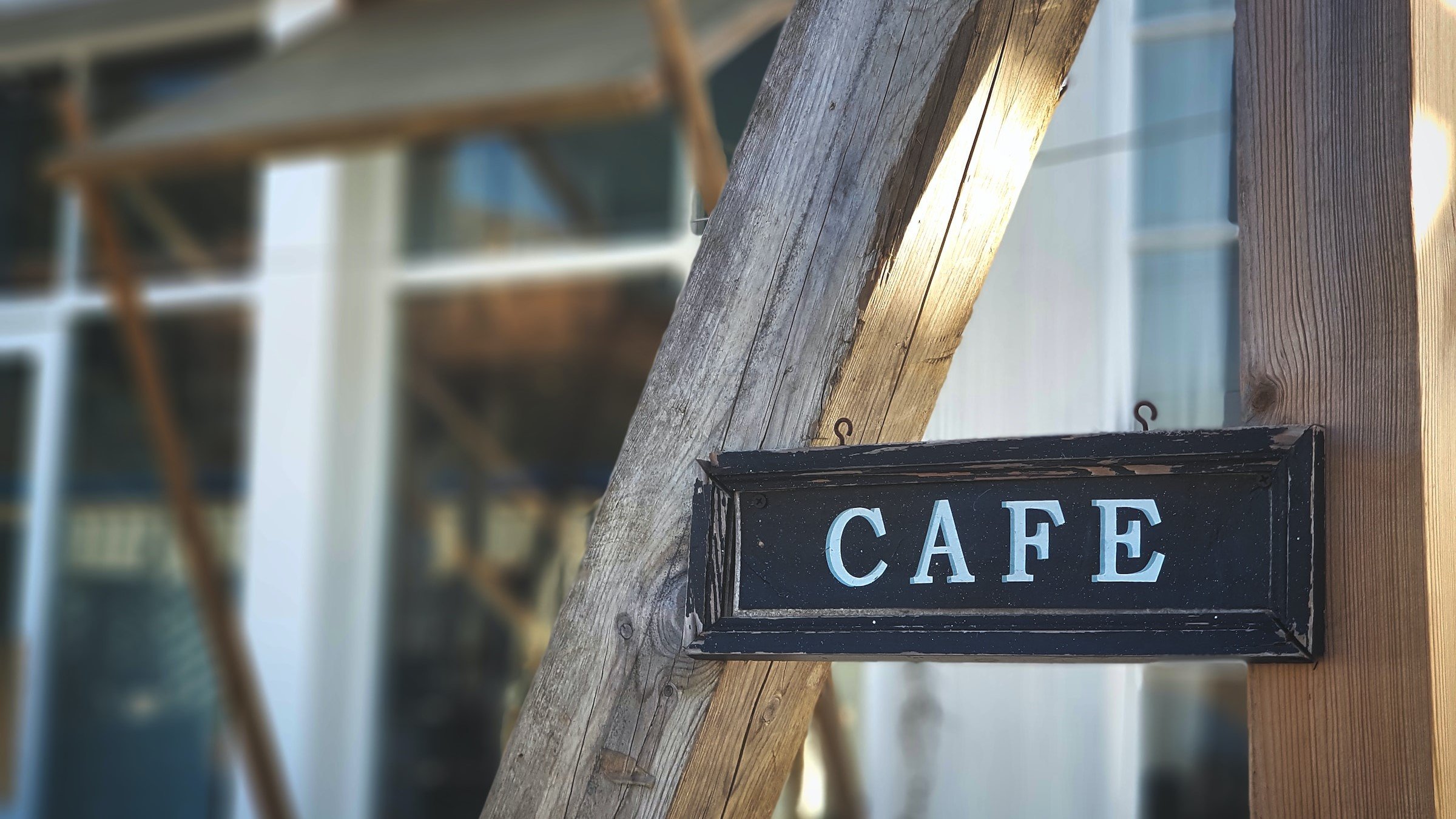
Jul 28, 2023 South Korea's Coffee Wars Jul 28, 2023 Jul 28, 2023

Jul 14, 2023 Camp Coffee, Colonialism, and the Evolution of a Brand Jul 14, 2023 Jul 14, 2023
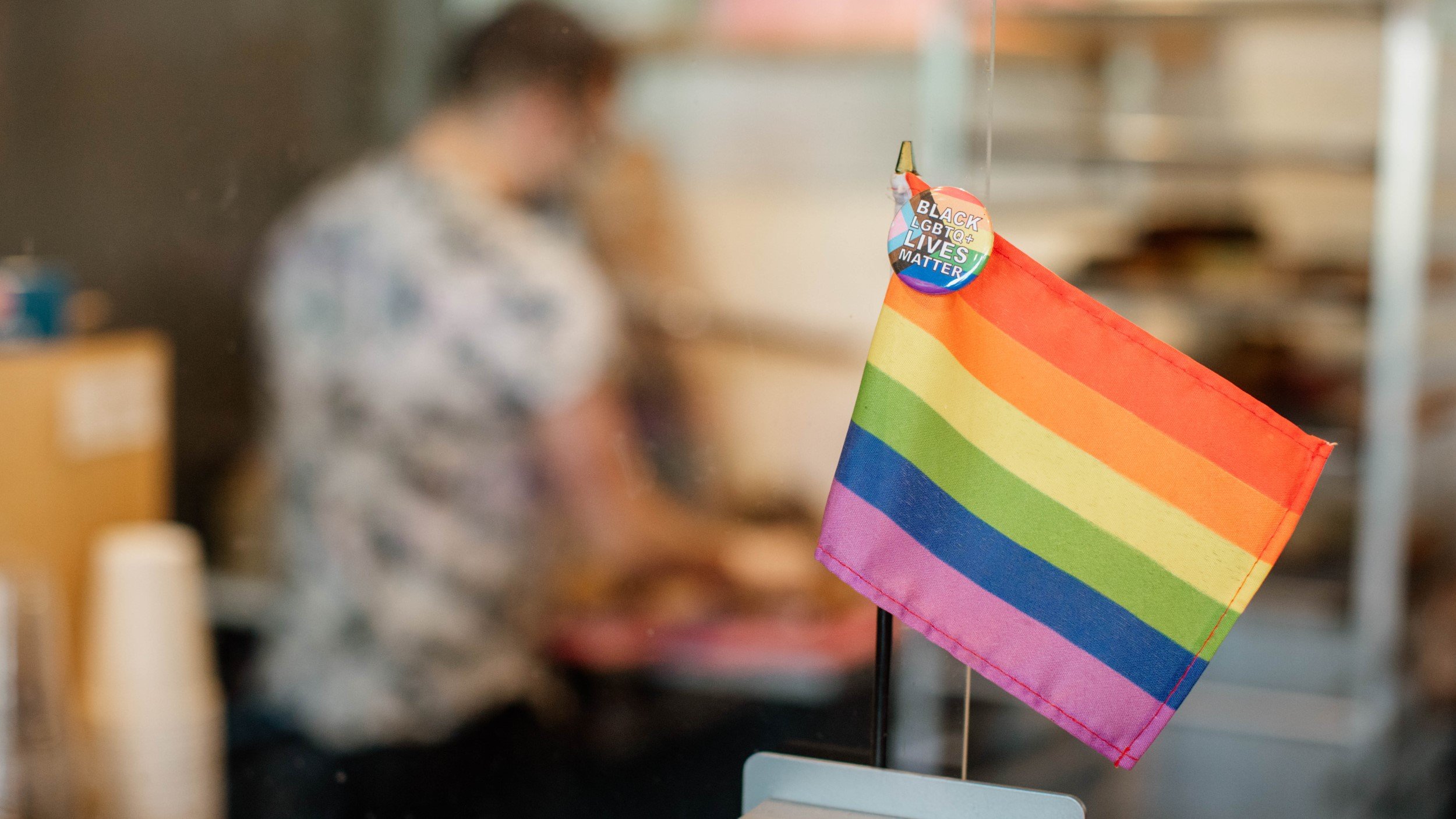
Jun 30, 2023 Defiance and Gay Frog Donuts: How Strange Matter Coffee is Navigating the Anti-LGBTQ+ Backlash Jun 30, 2023 Jun 30, 2023
A newsletter about coffee—its culture, politics, and how it connects to the wider world.